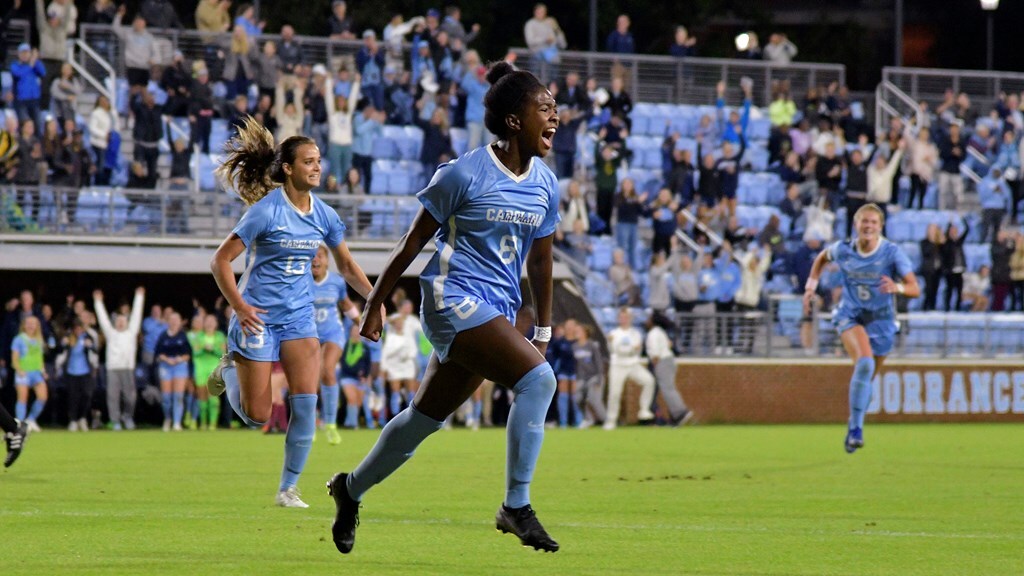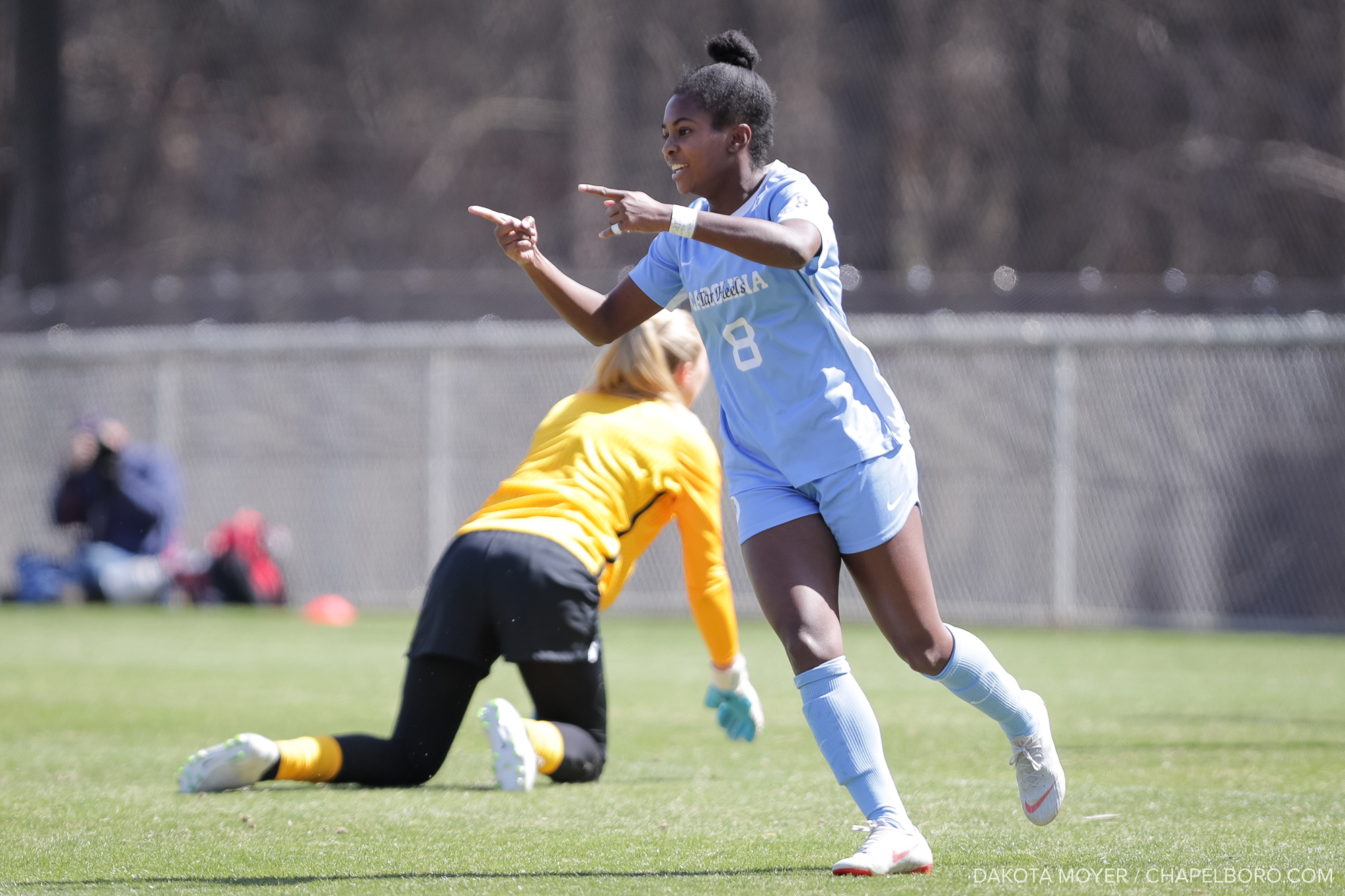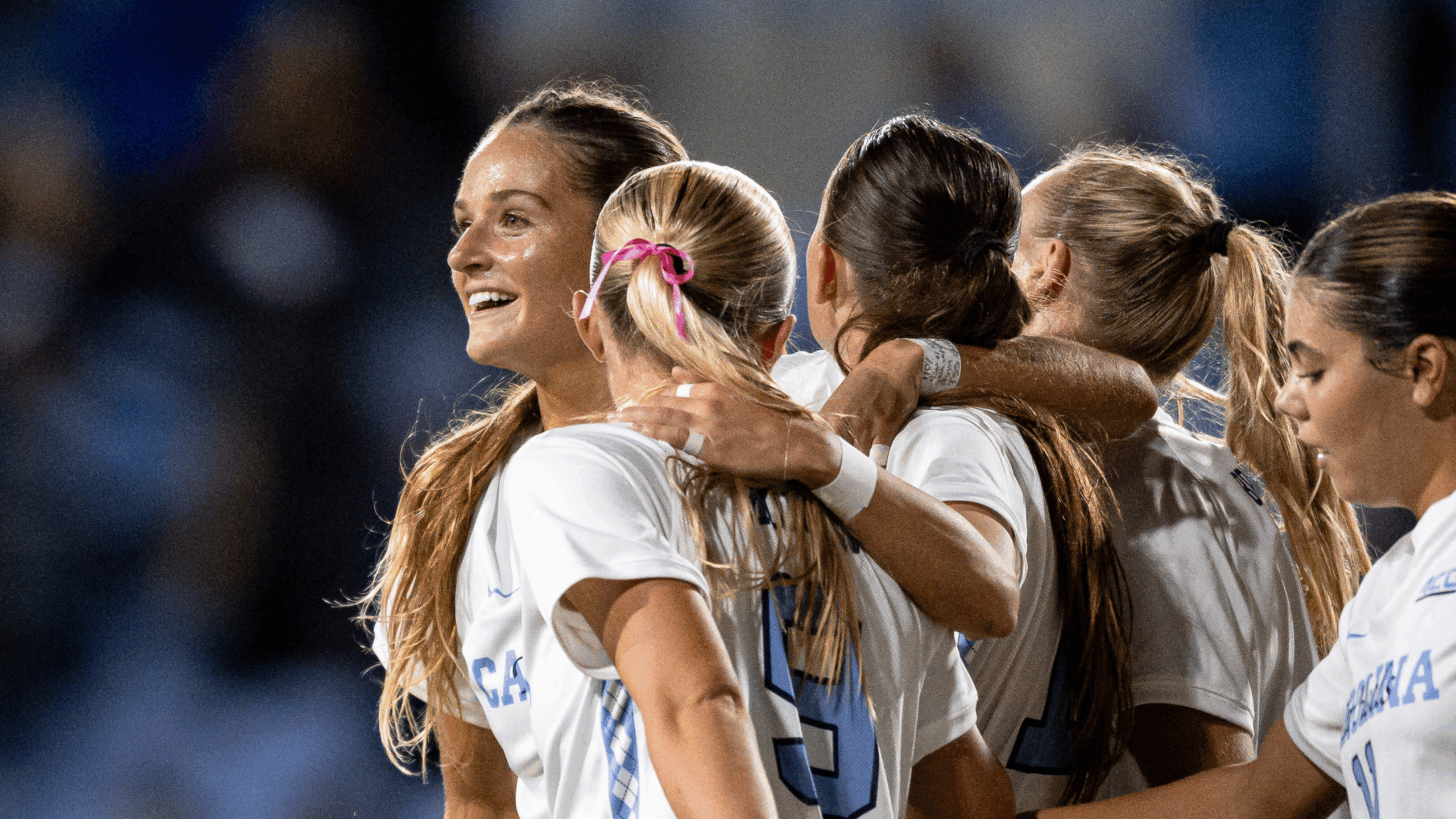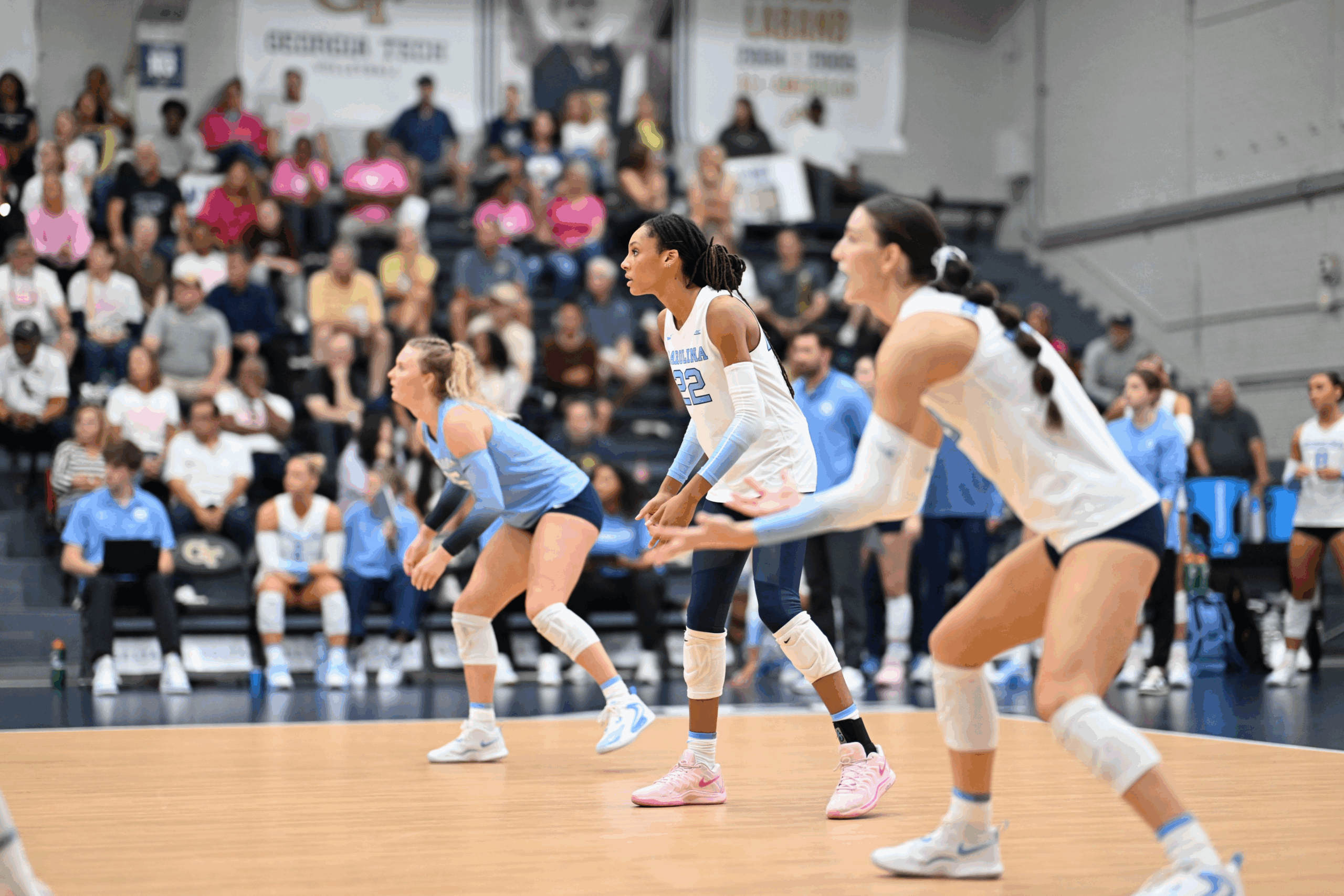Former UNC women’s soccer star Crystal Dunn said it wasn’t until she was a teenager that she played with other Black athletes.
“For a long time, I was the only Black girl,” Dunn said in a conversation with Brianna Pinto. “I’m sure you’ve had similar experiences.”
Pinto — currently a junior on the UNC women’s soccer team — hosted Dunn for a conversation about their careers as Black athletes in the world of soccer. Dunn played at Carolina from 2010 to 2013 and is currently a member of the U.S. women’s national team and the NC Courage of the NWSL.
Dunn said there weren’t many Black soccer players to look up to while growing up, so she turned to different sports.
“We know the reality is that there weren’t that many Black soccer players to look up to growing up, so I always loved Serena Williams,” she said.
Pinto, who also plays for the U.S. women’s national youth teams, echoed Dunn’s sentiments.
“Having people that look like you achieving high things, I think that’s so important. It’s so cool because it makes your dream feel more tangible because you get to see people just like you living your dream and it serves as a source of inspiration.”
In 2016, soccer star Megan Rapinoe took a knee during the national anthem at a game between the Chicago Red Stars and Seattle Reign FC. The move was a nod to former San Francisco 49ers quarterback Colin Kaepernick, who faced professional repercussions after kneeling during NFL games to protest police brutality and and racial inequality.
Dunn said she supported Rapinoe, but was unsure of how it would look if a Black athlete did the same thing.
“Me being a Black girl, I did not have a lot of support,” Dunn said. “I don’t even remember at the time how many Black girls were on the team consistently. So I know for me, I looked around the room and I was like, ‘Not a lot of you look like me.’ So I don’t even know how to talk to others about the whole idea of kneeling.”
In recent weeks, the MLS and NWSL have resumed play with players kneeling during the national anthem and wearing “Black Lives Matter” warm-up shirts. Players with the Philadelphia Union wore jerseys with the names of Black people who were killed by police violence.
Pinto and Dunn both reminisced about growing up as young Black soccer players and trying to get their hair in the high ponytail style that’s common among girls and teenagers. The two referenced a tweet from Utah Royals FC player Tziarra King, who harped on the fact that ponytails are commonly seen as the symbol for women in sports.
I’ve always felt some type of way about straight ponytails being the symbol for “women,” especially in sports. I’ve got x amount of soccer trophies in my basement with ponytails and every time I saw that as a kid I thought “this was not made for me.”
— Tziarra King (@tziarra) July 2, 2020
Pinto, whose parents both played college sports for UNC, said she looked up to Dunn as a role model in soccer while growing up. In response, Dunn reflected on how she is perceived as a Black player on national television.
“When you’re playing a sport, you’re thinking about just being the best player, being impactful on the field, but you’re not always thinking, ‘I want to do this for my race, for the girls that look like me, for the girls that might not feel confident playing this sport.’ But maybe they turn on the TV and see me on the TV and they think, ‘If Crystal can play on this team and excel at this at this game, maybe I can.'”
Dunn and the NC Courage play next on July 22 against the winner of the Houston Dash and Utah Royals FC in the NWSL Challenge Cup.
Listen to Pinto and Dunn’s complete conversation below:
Featured image via GoHeels
Chapelboro.com does not charge subscription fees. You can support local journalism and our mission to serve the community. Contribute today – every single dollar matters.











